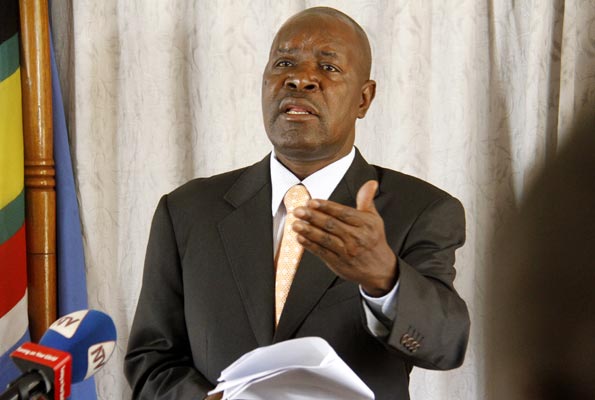Government is set to acquire a Shs 297.4 billion (USD 76.9m) loan from the African Development Bank to support irrigation programs in order to boost agricultural productivity.
This follows resolutions reached during a Cabinet meeting held yesterday at State House Entebbe, chaired by President Yoweri Museveni. During the meeting, Cabinet approved a proposal to borrow Shs 297 million to support the Agricultural Value Chain Development Program (AVCP).
The funding will support the provision of water for irrigation for rice farmers in Eastern Uganda through construction of a big irrigation scheme, and small scale irrigation for upland rice farmers in Northern Uganda.
While briefing reporters at the Uganda Media Centre on Tuesday on the outcomes of the Cabinet meeting, government Spokesperson, Ofwono Opondo said the loan will also go towards addressing value chain constraints for maize, rice and dairy/beef farmers in 28 districts.
“The other objective is to increase volumes of high value grades of maize and rice in order to obtain premium prices in the domestic and Regional markets,” Ofwono said.
“Our biggest problem is that we grow the largest quantities of maize in the region, however it is of low quality. World Food Program can’t buy our maize. Kenyan traders can’t buy our maize,” he said.
He made reference to engagements made between Uganda and the government of Brazil which had expressed interest in purchasing Ugandan maize grains.
However, according to Ofwono, when a team of officials from Uganda visited Brazil to follow up on the same, they were told that Uganda’s maize was not fit for human consumption.
“Therefore, there is need for government to help farmers with quality inputs but also better post harvest management”.
Under the same Agricultural Value Chain Development Program (AVCP), government intends to provide logistical support to dairy regulatory activities countrywide.
An internationally accredited laboratory at the Uganda National Bureau of Standards (UNBS), for Ugandan exports will also be constructed.
In a recent report titled ‘Closing the Potential Performance Divide in Ugandan Agriculture’, the World Bank made recommendations considered critical in increasing Uganda’s agriculture productivity and making it commercially viable.
World Bank observed that Agriculture in Uganda is largely dependent on rainfall, which creates an increasing challenge for agricultural production in light of rising climate variability.
The increasing unreliability and unpredictability of rainfall necessitates expanded or supplementary irrigation as well as improved water management to increase resilience to higher and more extreme climate variability, according to the World Bank.
“Robust irrigation schemes can boost agriculture productivity dramatically,” the report indicated.
According to he 2017 National Irrigation Policy (NIP), total irrigated area should be expanded to 400,000 ha by 2040. But sofar, only about 15,000 ha of cultivated land is under irrigation countrywide, out of a potential area of 3.03 million hectares.








